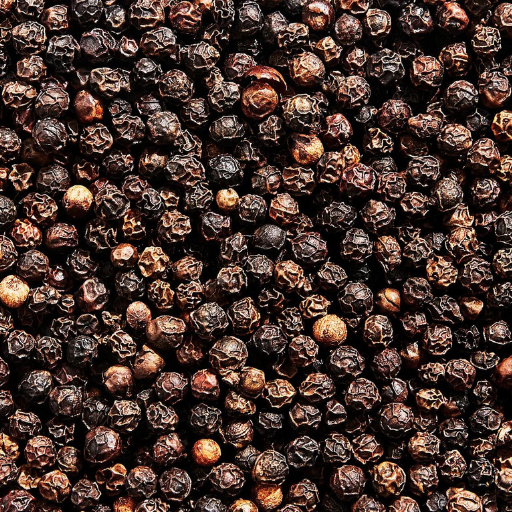The Wonders of Black Pepper!
What are the health Benefits of Black Pepper?

Black Pepper comes from the Sanskrit word” pippali. It is one of the sought after spice, due to its ability to flavour foods, as an act of preservative and add heat to a dish. It is a good source of manganese. It prevents diseases and maintains health.
Black pepper, scientifically known as *Piper nigrum*, is one of the most widely used and valued spices in the world. Native to India’s Malabar Coast, black pepper has been cherished for millennia for its distinctive flavor, culinary versatility, and medicinal properties. It remains a staple spice in kitchens worldwide, enhancing the taste of dishes ranging from savory to sweet. Beyond its culinary uses, black pepper is also celebrated for its potential health benefits, believed to aid digestion, improve nutrient absorption, and even possess antioxidant properties. Its enduring popularity and rich history make black pepper an indispensable spice in global cuisine and traditional medicine alike.
Health Benefits Of Black Pepper
Black Pepper can help with bone health, It’s good for wound healing, It aids metabolism, High in anti-oxidants, Has anti-inflammatory properties, Benefits the brain, May improve blood sugar control, May lower cholesterol level, For hormonal balances, Helps with bone health, Helps with wound healing, Boosts my metabolism, For diabetes, For amenorrhea, For delayed menstrual cycle, Digestion and intestinal health, Immune support, Aids absorption of other nutrients, Relieves cold and cough, Improves skin health, Enables weight loss, Removes hiccups, Remove stomach worms, Prevents cancer
Brief History Of Black Pepper
The spice originated in the Western Ghats region, thriving for millennia. Archeological findings date its use in India to 2000 BCE, prized for both flavor and medicinal virtues. It quickly became a coveted commodity, traded along ancient spice routes with Egypt and Rome. First cultivated around 1500 BCE when records show that it was used in traditional Indian cooking, around this time it had made it to Egypt where it was part of the mummification process along with being widely consumed and used as a medicine in most parts of the old world. It was widely regarded as the “king” of spices, even called “black gold” until recent history. It was extensively traded, especially on the Silk Road as it was seen at not only a culinary spice but also thought to have incredible health benefits.
REFERENCES